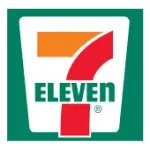7-Eleven
Interested in selling your 7-Eleven NNN property or 7-Eleven ground lease property and was wondering what you can get for it in today’s changing market?

Number of locations
Revenue and income
Future plans
Corporate vs. franchise
Additional information 7-Eleven Properties
7-Eleven was founded in 1927 in Dallas, Texas.
The company’s name is a reference to the fact that the first store was open 24 hours a day, 7 days a week.
7-Eleven is the largest convenience store chain in the world.
The company’s most popular products include Slurpees, Big Gulps, and hot dogs.
7-Eleven is a subsidiary of Seven & I Holdings Co., Ltd., a Japanese retail conglomerate.
7-Eleven History
Why Invest in Ground Lease and NNN Lease of 7-Eleven?
1) 7- Eleven NNN Property Investment: Stable income
2) 7-Eleven NNN Property Investment: Established tenant
3) 7-Eleven NNN Property Investment: Low management responsibility
4) 7-Eleven NNN Property Investment: Favorable lease terms
5) 7-Eleven NNN Property Investment: Real estate value
Pros and Cons of 7-Eleven Ground Lease and NNN Lease Investment
Pros:
1. Stable income from a well-established brand.
2. Established tenant reduces vacancy and lease default risks.
3. Minimal management responsibility for landlords.
4. Long lease terms provide stability and potential income growth.
Cons:
1. Lease renewal risk when the term expires.
2. Dependency on 7-Eleven’s success and operational challenges.
3. Market saturation and competition affect profitability.
4. Limited control over property decisions.
5. Economic and market risks inherent in real estate investments.
Thorough due diligence and consideration of location, lease terms, tenant strength, and investment strategy are essential. Seek guidance from real estate professionals and financial advisors to align with your goals and risk tolerance.

